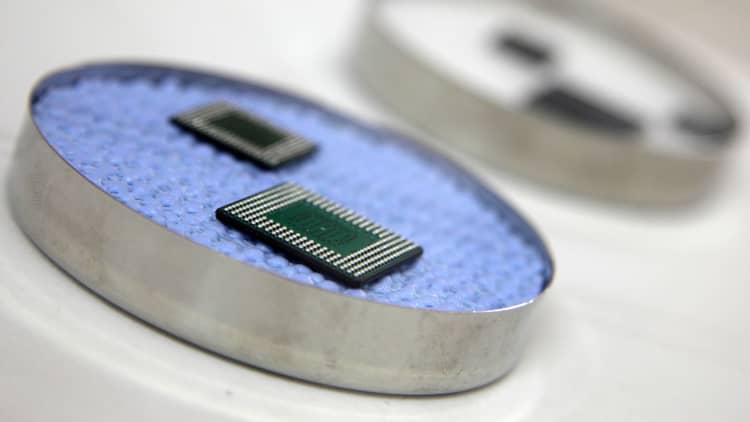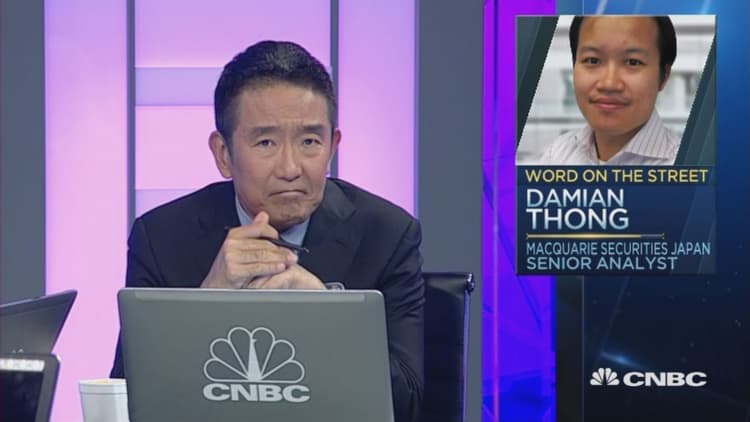
Japanese semiconductor company Renesas Electronics is in talks to acquire U.S. chipmaker Maxim Integrated, according to several sources close to the matter, in what could be close to a $20 billion acquisition.
A deal isn't imminent and one may not happen, said those people, who asked not to be named because the discussions are private. Renesas has a market capitalization of about $20 billion, while Maxim is valued at more than $16 billion.
Reached by CNBC, Renesas denied "speculations" that it is "in talks for a possible acquisition."
"Certain media reports were published today that Renesas is in talks for a possible acquisition," a Renesas spokeswoman told CNBC. "They were not based on a Renesas announcement. The company denies the speculations in the reports."
Renesas said it has no further comment. A spokeswoman for Maxim declined to comment.
Shares of Maxim, which jumped about 12 percent in during Monday's trading session, gave back much of those gains following reports that Renesas denied it was in talks.
Wave of consolidation in industry
A transaction would continue a multiyear wave of semiconductor consolidation driven by scale efficiencies, increasing demand from car companies and the rising costs of chip fabrication. Renesas beat out Maxim in 2016 to acquire Intersil, a semiconductor company whose chips are used in mobile and infrastructure applications, for $3.2 billion. Now the companies could come together.
Maxim has tried to sell itself before in deals that fell apart. In 2015 it attempted to sell itself after holding talks with Analog Devices and Texas Instruments, people familiar with the matter said at the time. Those talks failed over concerns about valuation.
Consolidation in the semiconductor industry was particularly busy in 2015 and 2016, with seven transactions of $12 billion or more. After a slow start in 2017, with year-over-year deal volume down nearly 85 percent in September, Broadcom's $103 billion hostile offer for Qualcomm in November has again made smaller chipmakers more urgently consider merging, one of the people said.
RELATED VIDEO: Will the Renesas-Intersil deal work? (Sept. 2016)



